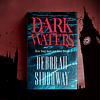You need to sign in or sign up before continuing.
Take a photo of a barcode or cover

debsiddoway 's review for:
Sarah's Key
by Tatiana de Rosnay
This book, in parts, was like watching a horror movie. I almost couldn't bear to read it, such was the dread I felt as the book opened with one of the worst atrocities perpetrated against Jewish French citizens in Paris during World War II. As the round up begins 'the girl' helps her brother to hide in a cupboard, locking him in. She tells him she will be back. But she is forced to leave him behind. As 'the girl's' story develops neither she, nor the reader, can escape from that awful vision of her little brother locked in a cupboard, waiting for her to come back and get him. Her own harrowing experiences, as she is trapped in the velodrome with her parents, and no food and water, almost pales because we cannot forget that little boy.
The first part of the book alternates between two time periods, July 1942 and the aftermath, and Paris in the early twentieth century, as Julia, an American journalist living in Paris with her French husband, is asked to write a story about what happened in the Vel d'Hiv' round-up. Julia's story serves two purposes - it places the silence surrounding France's history under the microscope, and it also almost serves as a breathing space as Sarah's story continues.
The book is uncomfortable to read - not only because the history is uncomfortable, but also because of the reticence Julia encounters as she tries to shine a light on the darker side of French involvement in the atrocities perpetrated against its own citizens, as though the collaboration with the Nazis is something that needs to be buried, forgotten.
The book is profoundly upsetting. But given the subject matter is engages with, it needs to be. If it was not upsetting it would have failed in its purpose. This is hard to read. But at the same time, I had to read it.
Well-written, well-researched, and not shrinking away from some of the more difficult aspects of French history, this is one book that I will not forget.
The first part of the book alternates between two time periods, July 1942 and the aftermath, and Paris in the early twentieth century, as Julia, an American journalist living in Paris with her French husband, is asked to write a story about what happened in the Vel d'Hiv' round-up. Julia's story serves two purposes - it places the silence surrounding France's history under the microscope, and it also almost serves as a breathing space as Sarah's story continues.
The book is uncomfortable to read - not only because the history is uncomfortable, but also because of the reticence Julia encounters as she tries to shine a light on the darker side of French involvement in the atrocities perpetrated against its own citizens, as though the collaboration with the Nazis is something that needs to be buried, forgotten.
The book is profoundly upsetting. But given the subject matter is engages with, it needs to be. If it was not upsetting it would have failed in its purpose. This is hard to read. But at the same time, I had to read it.
Well-written, well-researched, and not shrinking away from some of the more difficult aspects of French history, this is one book that I will not forget.